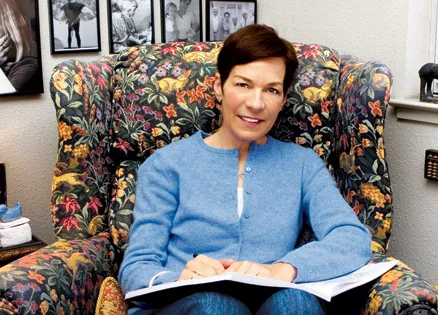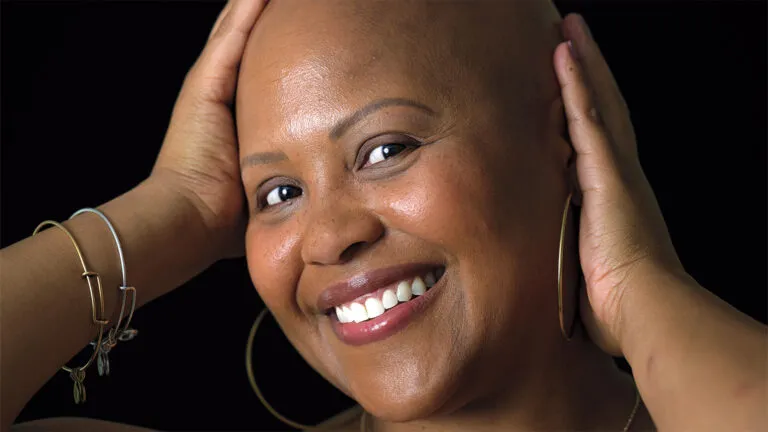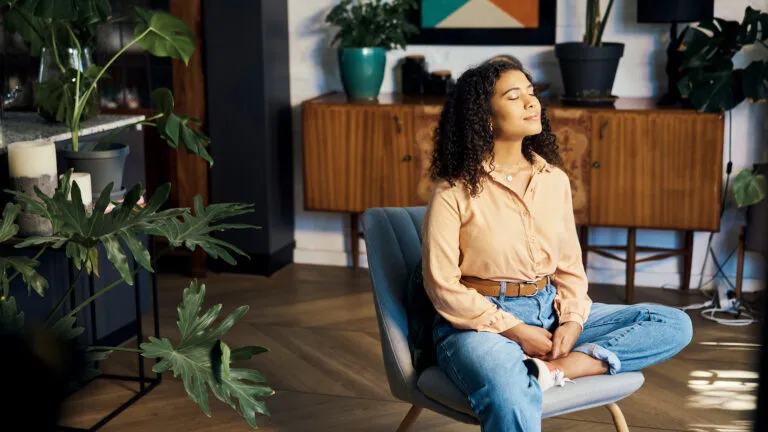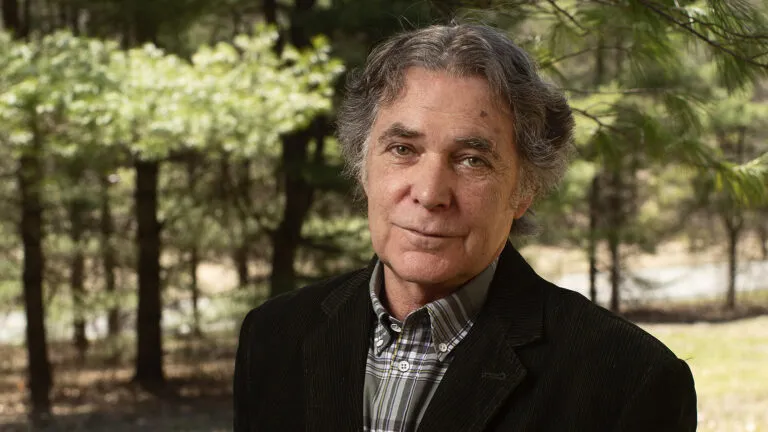On a Friday afternoon in the spring of 2002 I was in my study, working on a novel I’d started a few months earlier.
It was set in London in 1953, and it was slowly going nowhere. But as I stared at the sad little paragraphs I’d written, my plan changed. Something inside of me said, Go back to China.
I knew what that meant. My first novel was based on the life of an uncle of mine, and much of the story took place in Shanghai. I went downstairs and found the memoir my grandfather had written for our family, about the work he and my grandmother had done as missionaries in China. For years my mom had told me that her parents’ story would make a wonderful book, but I hadn’t thought their lives were interesting or complex enough for fiction. And the idea of writing about their faith made me uneasy, for I suspected their feelings about God were quite different from my own.
When I took my grandfather’s memoir from the bookshelf that afternoon and began reading the typed, single-spaced pages, it was like seeing it for the first time, and I found myself moved by his words. I read about him as a young missionary, witnessing the beheading of three men; about my grandmother saving the life of a woman who had overdosed on opium; about the two of them enduring China’s devastating 1921 famine, during which girls were sold at market, men walked hundreds of miles for grain and the dead lay in the city streets. I saw that I’d been wrong about my grandparents. Their lives were marked by conflict, danger and passion as well as faith, and I wanted to tell their story.
And so I got to work. I read books on Chinese history, then biographies and autobiographies of other missionaries who’d served in China. I looked at the photographs my mom had given me, black-and-white snapshots from my grandparents’ years in China. One was from their wedding day, in 1908, both of them solemn and young, and one was of my grandmother tending to a patient, an emaciated woman who had been brought to her on a crude wooden cart. Another, taken during the famine, showed a huge crowd seated in front of a stone wall, and still another was of a young Chinese couple, smiling and holding a baby in their arms.
I decided to tell my grandparents’ story through a character based on my grandfather. I worked hard at imagining his faith and who he believed God to be, and although the language was stilted (I used the phrase great blessedness a lot) and the characters weren’t very believable, I kept at it. By the fall of 2004 I had 80 or so pages of mediocre fiction.
Then life intervened. One afternoon that September, my doctor called to tell me that the lump he had removed from my breast three days earlier was not, as we had hoped, benign. I had breast cancer. He didn’t want to have this conversation over the phone; could my husband, Ron, and I come to his office? Twenty minutes later we were in a small exam room with my doctor as he went over my pathology report. I remember the words chemotherapy and radiation but not much else from that surreal conversation.
I’d been taught as a child that I was in God’s hands, and I kept telling myself that on the way home from the doctor’s office, but it wasn’t doing the trick. As soon as we got home, I went up to my study and called my friend Nita. Nita is a striking African-American woman, six feet tall, beautiful inside and out, the daughter of two preachers, with a profound and real faith in God. That afternoon she listened as I blurted out my news and my fears, and when she spoke, the sadness and shock in her voice mirrored what I felt. Yet I didn’t hear any fear. “Bo,” she said, “you’re all right. God’s got your back.” She spoke with certainty; she had no doubt.
I did. I felt like God had taken his eyes off the road for a second. But that phrase—God’s got your back—comforted me. Nita told me to fall back into his arms, and the image helped me through that night and the next and the weeks and months that followed. I needed all the help I could get, for although we had caught the cancer early, my treatment was aggressive: six rounds of chemotherapy followed by six weeks of radiation. But Nita and Ron assured me that I’d be all right, no matter what.
“No matter what” was a good catchall for chemo and radiation, which are not for the faint of heart. I received two chemo drugs through an IV drip, but the third was a vesicant, meaning it could cause blistering in the surrounding tissue—or on the skin of the person handling it. To protect herself, the nurse wore extra thick, purple rubber gloves as she administered the drug, which was danger-sign red, easing it into my vein through a syringe attached to the IV. She did this slowly; it hurt if it went too fast. It felt cold as it entered my vein, like a potion from a fairy tale.
At home in bed after each treatment, I tried not to dwell on the nature of the substances my body had received that day. When the heebie-jeebies got to me anyway, I clung to Isaiah 43, adding some lines of my own: Should you pass through the waters, I shall be with you, or through rivers, they will not swallow you up. Should you walk through fire, you will not suffer, and the flame will not burn you. Should you be injected with poison, it will not harm you. For I am with you; I’ve got your back.
During chemo my husband and friends were able to stay with me for the three or four hours I was at the treatment center. Radiation was different. Technicians controlled the process from behind a thick glass window, while I lay on the table in the treatment room by myself, listening to a Frank Sinatra CD that played as the medical linear accelerator lowered itself to my chest and worked its complicated magic. Lying there on that table I felt isolated and alone, and fear seemed very near.
But something else was also near, for during those 30 sessions I began to feel God’s love in a way I never had before; it seemed more potent and intense. I’d seen my own children hurt and afraid—my daughter when she’d needed stitches for a cut on the back of her head, my son when he’d had to have his wrist rebroken to reset the bone—and I knew the fierce love those experiences had evoked in me. Now I understood that that was what God felt for me, times infinity. I’d been told I was his child my whole life, but in the treatment room that knowledge became real. I knew that whatever happened, he’d see me through.
I had pushed the novel to the back burner when I got my diagnosis, and there it stayed while I was undergoing treatment and for months afterward. The few times I looked at what I’d written were like reading someone else’s work (chemo fog is very real), and I had no idea how to get back to it. Was it even what I should be working on? Was I going to write at all? I’d learned a lot about surrender during treatment, and I was willing to let go of the novel and even of my life as a writer, if that was what God wanted.
In September of 2006, nearly two years to the day after my diagnosis, I went to Mexico on vacation with Ron and some friends. The house where we stayed was on the ocean, and one morning everyone else left for a day-long fishing excursion. It was hot and humid, inside and out, and I wandered from room to room for a while, restless but grateful for the prospect of a day to myself.
Finally I went up to our bedroom. Next to the bed was a small wooden table, and it called to me. I pulled it into the center of the room, directly underneath the ceiling fan. I hauled a creaky wicker chair from downstairs and got out some pencils and a composition book I’d brought with me, then I sat down at the little table, stared out at the glimmering ocean and let the quiet settle over me.
And on that muggy day in that house on the water, I went back to China. I thought about my grandfather and how he must have felt, leaving his home and everything he knew. In one of the photographs my mom had given me, he was a young man, newly arrived in China, wearing Chinese dress, gazing tentatively at the camera, as though he was unsure about his future. But there was also determination in his expression; he looked like a man who would not give up, no matter what.
I opened my composition book, picked up a pencil and began to write. I found myself working on a section toward the end of the novel, where my elderly narrator talks about his God. The sentences came more easily than they had before, the voice felt more authentic and I knew that something had changed. I had changed. I was no longer writing about my grandfather’s faith. I was writing about my own.
Watch video of Bo sharing her tips for writing.
Download your FREE ebook, The Power of Hope: 7 Inspirational Stories of People Rediscovering Faith, Hope and Love





